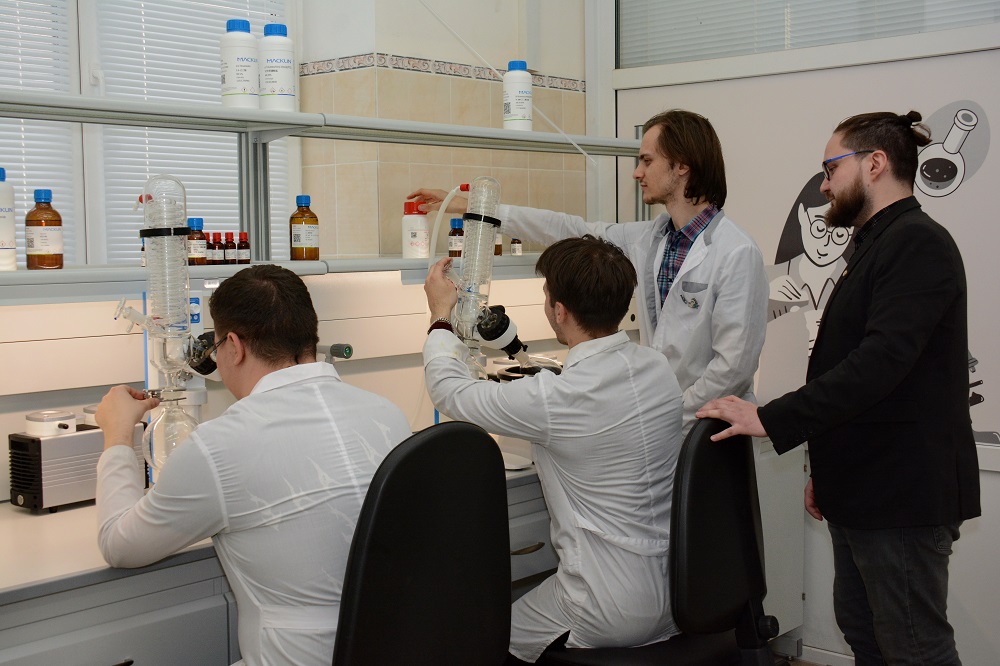- 30.01.2025
Young scientists of Tula State University develop environmentally friendly polymers
A review study published by a scientist at Tula State University describes the latest advances in the development of new-generation renewable polymers. The results obtained by the author give a new impetus to experimental work on the creation of polybenzoxazines - innovative materials that could change the approach to the use of polymers.
There are both natural (proteins, cellulose) and synthetic (plastics, rubber) polymers. With the growth of consumption, the issues of plastic waste disposal and the rational use of non-renewable resources such as oil and natural gas, which are needed for the production of traditional polymers, are becoming increasingly acute.
Young scientists at TulSU are actively exploring the possibility of using plant biomass as a source for the production of environmentally friendly polymer production. Plants that capture carbon dioxide and transform it into organic compounds can become the basis for the creation of new materials. This research is especially relevant for the regions with a high proportion of forested land and agrarian activity, such as the Tula region. Cellulose-containing agricultural waste can be not only incinerated or buried, but it can also be used to produce valuable compounds and biofuels.
One of the promising directions is the use of furan compounds such as furfurylamine. This substance attracts the attention of scientists as a possible substrate for creating polybenzoxazines - a new class of polymers with unique properties, including low thermal shrinkage, high thermal stability and resistance to ignition.
‘Despite significant progress in the development of the next-generation renewable polymers with controllable properties and a variety of possible applications, the field faces significant challenges, as several factors at once hinder the implementation of these developments into everyday life and practice. The most significant factor, of course, is the cost of raw materials: renewable phenols are unlikely to equal the cost of conventional petroleum-derived alternatives in the near future, and the price of aniline, a large-tonnage petrochemical product, is orders of magnitude lower than that of furfurylamine.
The development of new renewable polymers allows us to gradually lay the foundations for future approaches in materials science, where plant biomass will become a natural and inevitable alternative to non-renewable raw materials for the production of various classes of polymers, said Bogdan Karlinsky, PhD in Chemistry, Head of the Laboratory of Chemical Conversion of Renewable Biomass and Organic Synthesis at TulSU.
According to the scientist, the use of cellulose-containing agricultural waste can lead to the creation of valuable compounds and biofuels, opening new horizons for sustainable development.
The research was supported by the Russian Ministry of Education and Science under the programs for the creation of new youth laboratories and “Priority – 2030” and as a part of the development of the world-class scientific and educational centre “TulaTech”.
According to the materials of the website of the Ministry of Education and Science of Russia








